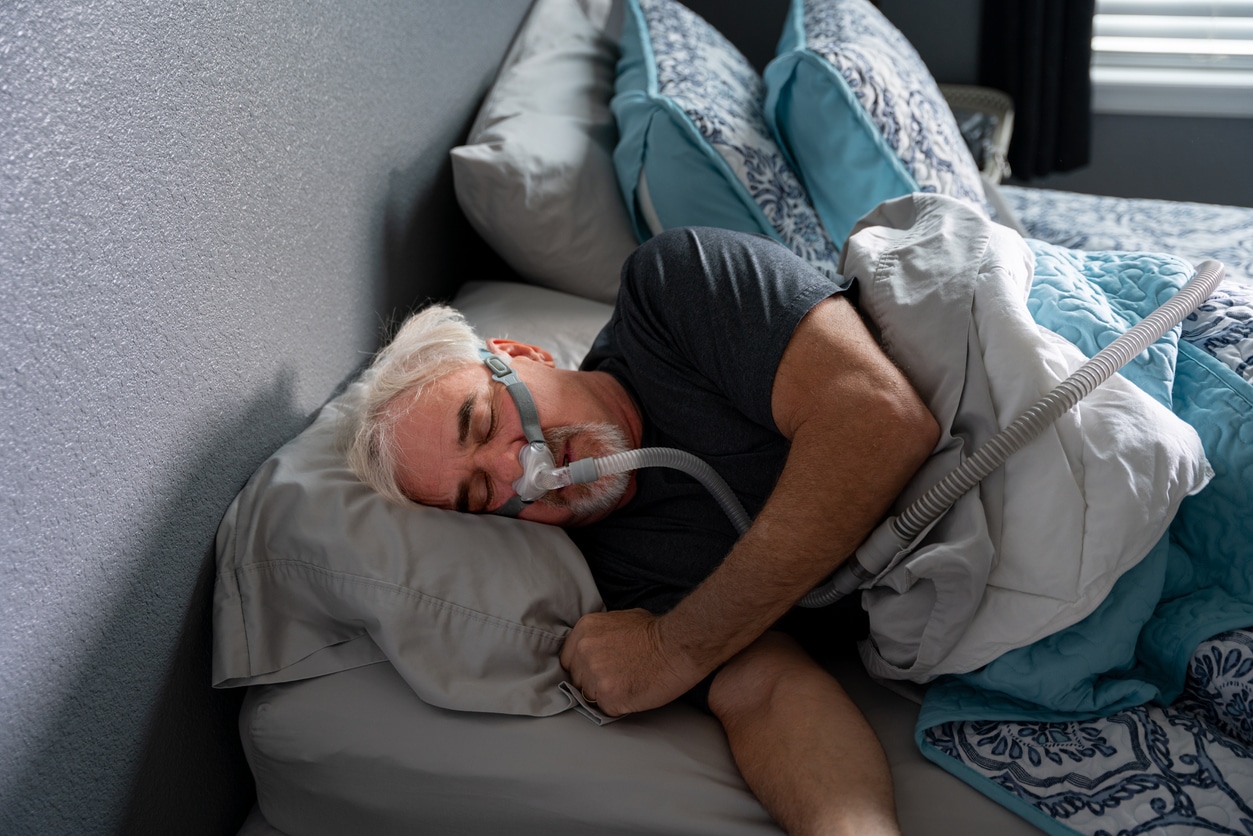If you have been diagnosed with sleep apnea, you might not know that this condition could be putting your hearing health at risk. Below, we explore the relationship between sleep apnea and hearing loss, along with tips on managing both.
What Is Sleep Apnea?

Sleep apnea is a disorder that affects breathing during sleep, often causing repeated pauses in breathing that can lead to disrupted sleep. Common symptoms include loud snoring, episodes of gasping or choking, insomnia, daytime fatigue, dry mouth, headaches, difficulty concentrating and mood changes. Sleep apnea can be classified into three main types:
- Obstructive Sleep Apnea (OSA): This type occurs when tissues in the throat relax excessively, partially or completely blocking the airway.
- Central Sleep Apnea (CSA): Here, the brain doesn’t send the right signals to the muscles that control breathing.
- Complex or Mixed Sleep Apnea: This form is a combination of both obstructive and central sleep apnea.
What Does the Research Say?
Research highlights a potential link between sleep apnea and hearing issues. For example, a study from 2016, which looked at over 16,000 participants, revealed that individuals with sleep apnea were 26% more likely to have high-frequency hearing loss, 127% more likely to experience low-frequency hearing loss, and 29% more likely to have a combination of both types.
Another study from 2016 found that people with severe sleep apnea who also had lower blood oxygen levels faced an even higher risk of hearing loss.
Additionally, a study conducted in 2017 observed that middle-aged and elderly individuals with sleep apnea, along with other sleep-related issues, had a significantly higher chance of developing tinnitus (persistent ringing in the ears).
Understanding the Link
Although there is a clear association between sleep apnea and hearing issues, there is no direct evidence that sleep apnea causes hearing loss.
However, researchers have proposed a few theories to explain the connection:
- Reduced Blood Flow to the Inner Ear: Sleep apnea may limit oxygen-rich blood flow to the inner ear, which requires ample oxygen to function properly.
- Noise-Induced Hearing Damage from Snoring: Over time, loud snoring could contribute to hearing loss in the same way exposure to loud noises would.
Tips for Managing Sleep Apnea
There are several ways to manage sleep apnea and reduce its symptoms:
- Lifestyle Adjustments: Quitting smoking, losing weight and regular exercise, like going to a San Diego gym, can help improve sleep apnea symptoms.
- CPAP Therapy: A continuous positive airway pressure (CPAP) machine keeps airways open, reducing apnea events during sleep.
- Oral Appliances: Devices that support the tongue and soft tissues in the mouth can help keep the airway open during sleep.
- Surgical Options: In some cases, surgery may be recommended to correct anatomical issues causing obstruction.
If you suspect hearing loss, schedule an evaluation with an audiologist to discuss treatment options. For more details or to make an appointment, reach out to San Diego ENT.